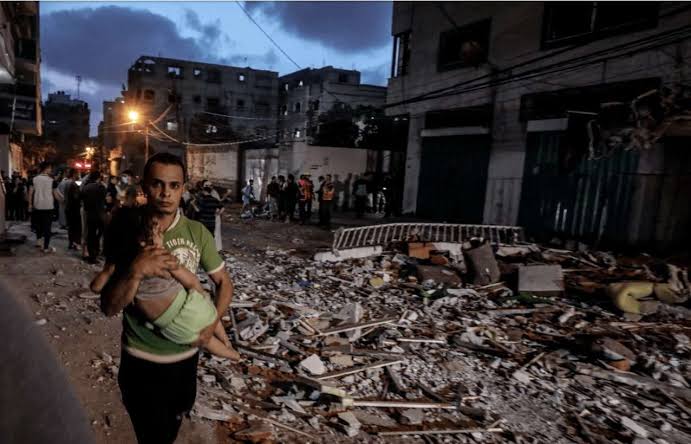Amidst the recent onslaught on Gaza, a densely populated enclave with over 2.5 million residents, the world witnessed a modern military arsenal, generously fueled by substantial military aid, taking aim at a trapped population enduring a ruthless blockade on land, sea, and air. Gaza had transformed into a prison, leaving its people as prisoners in their own homeland.
The devastation unfolded, with the recurring narrative of self-defense being invoked. Israel, supported by significant military aid from the United States, asserted its right to self-defense. This oft-repeated claim aimed to rationalize the tragic loss of innocent lives, leaving the international community struggling to grapple with the consequences of geopolitical complexities.
Buildings that once symbolized hope and resilience crumbled under the weight of munitions, trapping their occupants with no escape. Hospitals, schools, and homes all bore the brunt of the relentless shelling, sparing no corner of Gaza. Thousands were left injured, their desperate cries for help seemingly falling on deaf ears worldwide. Over 10,000 unarmed civilians teetered on the edge of life and death.
Despite the looming threat of a ground invasion, the resilience of the Palestinian spirit remained unbroken. Families found solace and strength in their shared history, clinging to hope, whispering prayers for safety, and trusting that their endurance would carry them through the darkest days.
However, the international response remained entangled in geopolitical considerations. The Arab and Muslim world, though deeply sympathetic to their Palestinian brethren, found their actions constrained. The world grappled with the stark discord between principles of justice and the intricate web of global alliances.




